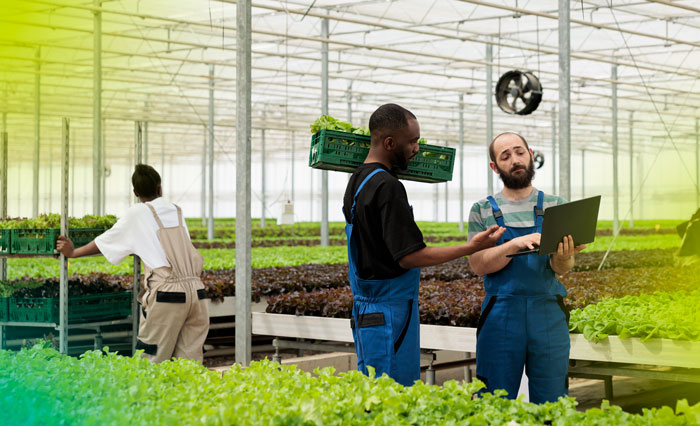In today’s rapidly evolving business landscape, incorporating Sustainability and Corporate Social Responsibility (CSR) practices isn’t just a trend—it’s a strategic imperative. As a business owner, understanding and embracing these concepts can not only enhance your brand reputation but also drive long-term success. Let’s delve into what Sustainability and CSR entail, why they matter more than ever, and how they can benefit your operations.
What is Sustainability & Corporate Social Responsibility?
Sustainability refers to the responsible use of resources to meet present needs without compromising the ability of future generations to meet their own needs. On the other hand, Corporate Social Responsibility (CSR) embodies a company’s commitment to operating ethically and contributing positively to society and the environment.
Why Does it Matter to Businesses?
Increases Employee Motivation:
- Employees are increasingly seeking purpose and meaning in their work. Engaging in CSR initiatives gives employees a sense of pride and fulfillment, knowing that they’re contributing to positive social and environmental outcomes.
- Companies that prioritize CSR often experience higher levels of employee satisfaction and retention. When employees feel aligned with their company’s values and see tangible evidence of its commitment to social responsibility, they’re more motivated to perform at their best.
Did you know: Research has shown that 82% of Gen Z workers consider CSR a significant factor when deciding on their next employer, and 66% would consider a pay cut if it meant working for a more socially responsible company.
Community Support and Customer Loyalty:
- Social responsibility serves as a platform for companies and consumers alike to make a positive impact on local and global communities. When businesses align their social responsibility initiatives with their core values, they have the opportunity to strengthen customer retention and loyalty.
- According to research, a staggering 87% of American consumers are more inclined to purchase products from companies that advocate for issues they care about. Moreover, a significant 76% would outright refuse to buy products from companies that support issues contrary to their beliefs.
By leveraging social responsibility initiatives to connect with consumers on a deeper level, businesses can not only enhance their brand reputation but also foster enduring customer relationships built on shared values and mutual trust.
The Growing Consumer Interest
Today’s consumers are more socially and environmentally conscious than ever before. They’re not just looking for quality products; they’re also scrutinizing the ethical practices of the companies behind those products. Studies consistently show that a significant portion of consumers prefer to support businesses that demonstrate a commitment to sustainability and CSR initiatives. By aligning your business with these values, you can attract and retain a loyal customer base while also differentiating yourself from competitors.
Benefits of Sustainability and CSR Programs
Implementing sustainability and CSR initiatives can yield numerous benefits for businesses:
Cost Savings:
- Adopting eco-friendly practices such as energy efficiency and waste reduction can lead to significant cost savings over time.
- Streamlining processes to minimize resource consumption can also result in improved operational efficiency and reduced expenses.
Meeting Regulatory Expectations:
- Governments worldwide are increasingly imposing regulations aimed at promoting sustainability and corporate responsibility. By proactively embracing these initiatives, your business can stay ahead of compliance requirements and avoid potential penalties.
Enhanced Brand Reputation:
- Demonstrating a commitment to sustainability and CSR can elevate your brand reputation, fostering trust and goodwill among consumers, investors, and other stakeholders.
- Positive brand perception can translate into increased market share and greater resilience against reputational risks.
Leading Retailers Committed to CSR
Several prominent retailers have made substantial commitments to sustainability and CSR:
Loblaws:
– Loblaws, one of Canada’s largest grocery retailers, has implemented various sustainability initiatives, including reducing greenhouse gas emissions, minimizing food waste, and sourcing responsibly produced goods. [Read more]
Sobeys:
– Sobeys, another major Canadian supermarket chain, has undertaken initiatives to reduce its environmental footprint, such as implementing energy-efficient technologies and promoting sustainable sourcing practices. [Read more]
Walmart:
– Walmart, a global retail giant, has made significant strides in sustainability, focusing on areas such as renewable energy adoption, waste reduction, and supply chain transparency. [Read more]
7 Key Sustainability and CSR Efforts for Businesses
Businesses play a crucial role in driving sustainability and corporate social responsibility. Here are five key areas where they can focus their efforts:
Carbon Reduction/Net Zero Initiatives:
– Carbon reduction and achieving net-zero emissions are vital steps in combating climate change. Businesses can implement strategies to minimize their carbon footprint through energy efficiency measures, transitioning to renewable energy sources, and investing in carbon offsetting projects.
Clean Energy:
– Transitioning to clean energy sources such as solar, wind, and hydroelectric power can significantly reduce greenhouse gas emissions associated with business operations. By embracing clean energy technologies, companies can lower their environmental impact while also potentially reducing long-term energy costs.
Sustainable Supply Chains:
– Businesses can promote sustainability throughout their supply chains by sourcing materials from environmentally responsible suppliers, promoting fair labor standards, and minimizing the environmental impact of transportation and logistics.
Sustainability Reporting:
– Transparent reporting on sustainability performance is essential for accountability and building trust with stakeholders. Businesses can engage in sustainability reporting by measuring and disclosing their environmental, social, and governance (ESG) metrics, providing insights into their sustainability efforts and progress over time.
Circular Economy:
– Embracing the principles of the circular economy involves designing products for durability, recyclability, and reuse. Companies can adopt circular economy practices by implementing product lifecycle assessments, promoting product stewardship, and developing take-back and recycling programs to minimize waste and maximize resource efficiency.
Biodiversity:
– Protecting and enhancing biodiversity is crucial for maintaining ecosystem health and resilience. Companies can contribute to biodiversity conservation by implementing habitat restoration projects, reducing habitat destruction and fragmentation, and adopting sustainable land management practices.
Sustainable Technology:
– Investing in sustainable technologies can drive innovation and efficiency while reducing environmental impact. Businesses can leverage technologies such as advanced analytics, automation, and green manufacturing processes to optimize resource use, reduce waste, and improve overall sustainability performance.
Conclusion
Incorporating sustainability and CSR into your business isn’t just a moral obligation—it’s also a strategic imperative for long-term success. By embracing these principles, you can not only reduce costs and meet regulatory expectations but also enhance your brand reputation and attract conscientious consumers. As leading retailers like Loblaws, Sobeys, and Walmart demonstrate, sustainability and CSR are integral to fostering a resilient and responsible business ecosystem. So, seize the opportunity to leverage these principles to drive positive impact while securing a competitive edge in today’s dynamic marketplace.






